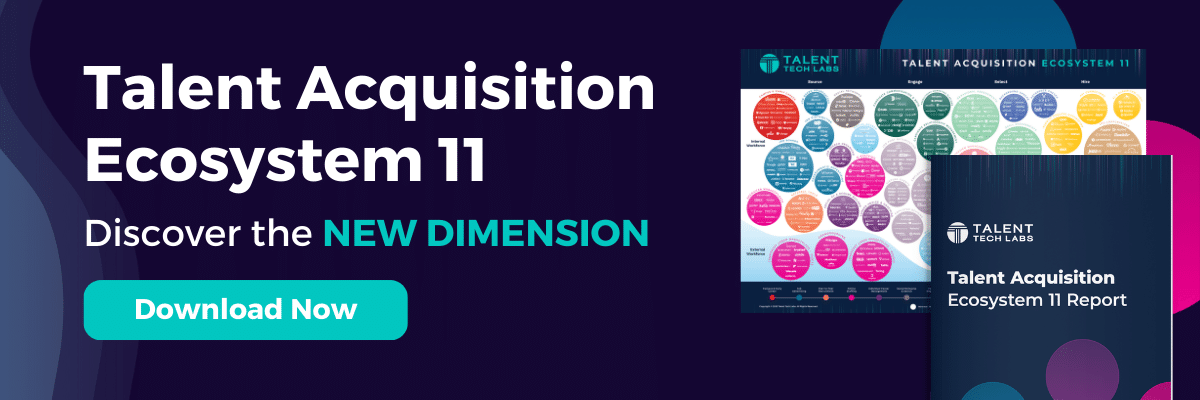Organizations of any size can save money, time and resources through automation, and interview scheduling technologies have become one of the most cost-effective and easily deployable ways to automate HR functions. It’s no wonder that Talent Tech Labs is getting so many questions from our clients about how they can add interview scheduling technology to their tech stacks or which vendors might work best for them.
These tools can substantially improve the talent acquisition function, whether at a staffing agency or a corporation or whether the entity is public or private. As the name implies, they reduce the time to schedule. Candidates are shown a pre-loaded set of interviewers’ schedule vacancies, and the candidates simply click the ones that work best for them, a similar experience to scheduling a meeting via Calendly. (And for that reason, we’re not surprised to see Calendly moving into the interview scheduling space with its recent acquisition of Prelude, one of the leading vendors.) The interview is set, and the recruiters and hiring managers can focus on other tasks.
What if there are many interviews to schedule with coordinating times, such as an interview panel? Interview scheduling technologies handle all of that by finding the best interview times based on the availability in each interviewer’s schedule – calendars are easily integrated into the system – while more advanced scheduling tools can even schedule over less critical meetings if there are simply no available times that work for an interviewer. Those same advanced tools can also make recommendations for an interview based on the skills and specialties of an interviewer.
These types of features give time back to recruiters or hiring managers to spend on their more critical tasks. Of course, saving time saves money for the organization, and it makes talent acquisition easier and more efficient.
For some organizations, time might be the most important factor in talent acquisition, and interview scheduling tools can make a significant difference to the bottom line. Organizations that do high-volume hiring can reduce the time from application to interview from several days to 15 minutes. This reduces candidate drop-off, leading to a better selection of candidates and potentially better hires.
Candidates benefit from these tools, as well. In the event of a conflict, candidates can reschedule with just a few clicks, instead of having to work back and forth with a coordinator or hiring manager to find a new time. Interview scheduling tools also send reminders at regular intervals to candidates about their upcoming interviews. These tools also generally distribute and process candidate feedback surveys to give hiring teams a sense of how to improve their interviews going forward.
Lastly, just about any interview scheduling tool will offer some level of analytics, like time to hire, characteristics about successful or unsuccessful candidates, or where the most reschedules are happening. Armed with this data via a simple dashboard, TA leaders can build better strategies for finding the right candidates.
Like many talent acquisition platforms, the core functions of an interview scheduling platform might seem simple, but there’s considerable nuance to them. At TTL, we write comprehensive reports with in-depth coverage of these tools’ different features. In this post, we provide a high-level overview of the major categories of Interview Scheduling Technology. If you would like to learn more about interview scheduling technologies, Talent Tech Labs can provide guidance. Contact us today.
The Three Major Categories of Interview Scheduling Are Coordinator-Based UX, Conversational AI and Interview Intelligence. Click To Tweet
Learn about the Major Categories of Interview Scheduling Technology
Coordinator-Based UX
Coordinator-based UX tools, as we’d call them, are the simple, standalone interview scheduling platforms that take on much of the legwork of interview scheduling while keeping some parts of the scheduling process in the hands of coordinators. These are lighter-weight tools (at generally a lighter-weight price point) that provide clickable–or sometimes automated–interview scheduling, rescheduling, and analytics, while allowing recruiters to make that initial introduction to the candidate and manage the candidate’s information from the application.
These tools maintain a little more of a personal touch in the initial stages of the hiring process, which can be a benefit to an organization, particularly one that is hiring for high-level roles, where that personal touch is not only preferred but perhaps expected.
Conversational AI
Taking interview scheduling technology a step further, conversational AI tools allow an organization to automate most or even all of the initial stages of the hiring process up to the interview. These tools use chatbots on a career site to handle a wide range of initial processes: making an introduction to the candidate, answering the candidate’s questions, gathering necessary application information, perhaps inserting screener questions or assessments, processing completed applications, and scheduling interviews among qualified candidates and hiring teams. Like coordinator-based UX tools, they also provide scheduling and candidate metrics to support high-level strategy.
Convenience and speed are the goals of conversational AI scheduling platforms. For this reason, they often cater to high-volume industries, like retail or warehousing. But any organization with an interest in saving recruiter or hiring manager resources for the later stages of the hiring process can benefit from them. Because of the artificial intelligence required to power the chatbot, among other technological requirements, these platforms tend to come at a higher price point. You’re more likely to see conversational AI platforms in use at the enterprise level, where the substantial hiring demands make the cost-per-candidate of the platforms a little lower.
Interview Intelligence
The newest category of technology in the interview scheduling space is interview intelligence. These solutions take on a lot of the functions of other interview scheduling tools, such as clickable or automated scheduling and rescheduling and even chatbots, but they tend to build from the interview analytics out. In doing so, they take on other interview functions, like video interviewing and interview listening.
The goal is to automate the difficult work of detailing and later summarizing every facet of the interview. These tools will use voice recognition and natural language processing to transcribe an entire interview, then provide keywords and a detailed summary that highlights the most important parts of the interview, so that interviewers can focus on asking thoughtful questions and having great conversations with candidates.
On the back end, these platforms provide all the analytics you might see of the tools above, but they also provide insights into the interviews themselves. This helps to both find better candidates and to prepare better interviews. Hiring teams can train their interviewers to ask better questions and improve tone based on the feedback the tools provide. It provides automated interview feedback to supplement feedback from candidate surveys.
Like conversational AI tools, these technologies tend to come at a higher price point, because they rely on AI and natural language processing technologies as part of their core functions. Keep this in mind if you’re interested in using these tools to better leverage analytics in your interviews.
Interview intelligence technology uses voice recognition and natural language processing to deliver a detailed summary of every facet of the interview and the analytics for overall interview process improvement. Click To TweetShould an Organization Consider a Point Solution or an Internal Module?
While point solutions tend to offer advantages that modules within a large HR system can’t match–such as innovation and customer support–interview scheduling modules can be quite impressive themselves. Essentially every major TA system offers an interview scheduling module, and while these vendors’ modules had traditionally only kept up with coordinator-based UX platforms, some modules have started to offer more advanced functions like AI chatbots or predictive analytics. These modules can be ideal for organizations that wish to stay as much as possible within a single vendor’s ecosystem.
However, the core functions of the point solutions in the interview scheduling marketplace are top tier, and vendors are adding new capabilities quickly. TTL would still point to a number of point solutions capable of providing any level of automation to interview scheduling while maintaining product and customer support resources focused solely on that core function.
Where Can I Find More Information?
Interview scheduling technologies are a great early step toward adding automation to the TA process compared to many other types of talent acquisition technology, because they’re capable, but also relatively lightweight and easily scalable. There are clear leaders in the space, but the variety of tools offers some flexibility for organizations to find the tools that work best for them. If you are looking for ways to add automation to interview scheduling, TTL can help provide recommendations of platforms that will work best with your tech stack. Reach out to get more information through our research and advisory insights into Interview Scheduling technologies. Reach out today!

